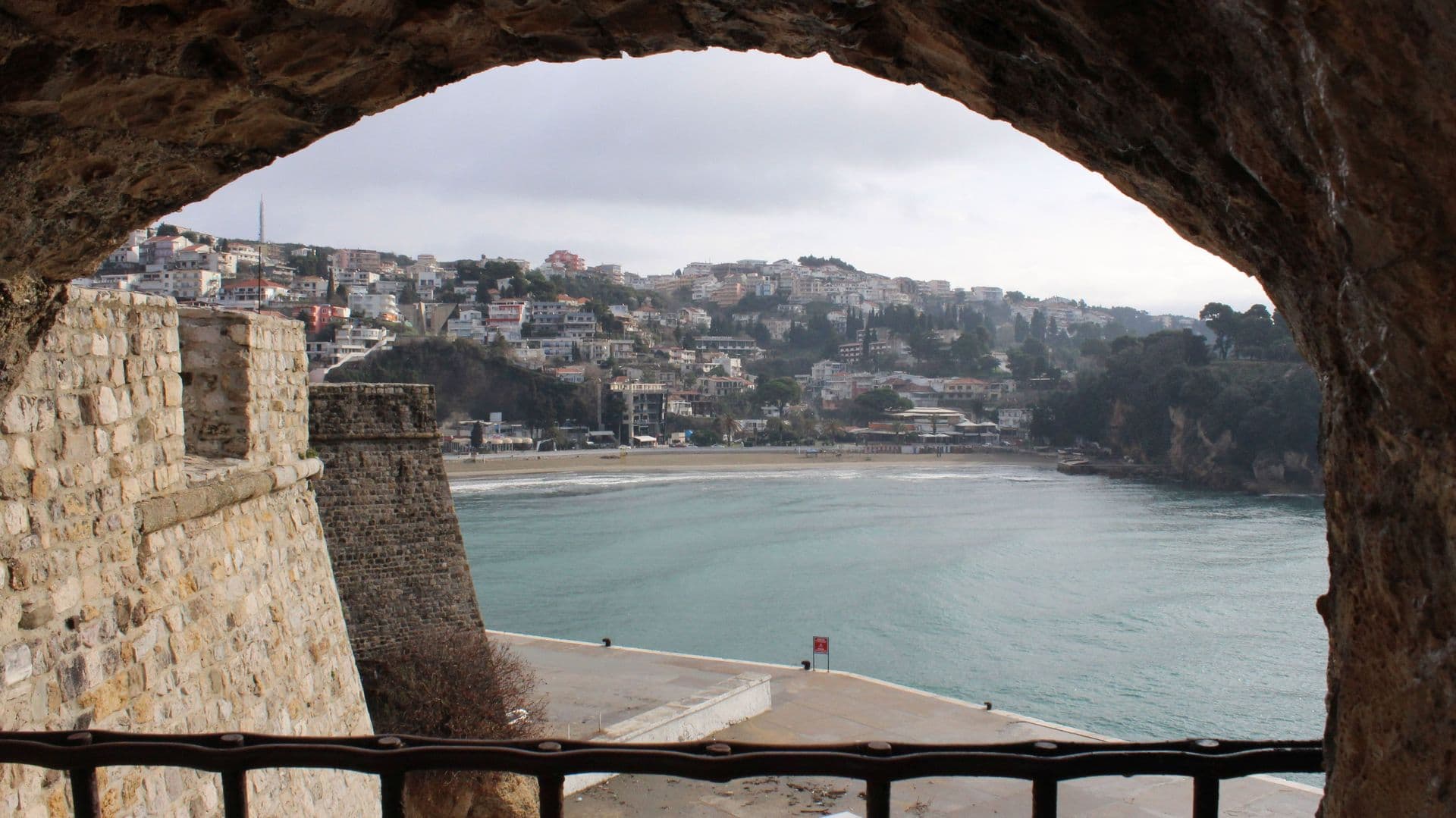Top Stories
Kosovo Citizens Invest Over €1 Billion in Ulcinj Real Estate

Kosovo citizens have made significant investments in real estate in Ulcinj, Montenegro, exceeding €1 billion. This surge is noted by Škeljzen Rizaj, Director of the Kosovo Tourism Centre, who emphasized the challenges in accurately assessing the number of tourists from Kosovo visiting Montenegro during the summer season. Although official statistics suggest a decrease in Kosovar visitors compared to last year, Rizaj argues that the reality is likely different due to the high volume of property purchases.
Rizaj explained, “The official statistics might indicate fewer Kosovars, but that’s difficult to verify. Many have bought apartments and other properties in Ulcinj, which is now their home.” He pointed out that many Kosovars prefer to stay with friends in Ulcinj rather than registering as tourists. This unique relationship stems from historical ties, as many residents of Ulcinj have studied in Kosovo, fostering lasting connections.
Despite the substantial investment, Rizaj noted that the summer season has been marked by uncertainty. Political instability in the region, rising living costs, and ongoing traffic congestion have dampened the tourism experience. The director highlighted that many favorite beach spots were closed for significant portions of the season, which confused potential visitors.
Tourists from Kosovo, who typically favor Ulcinj, were dismayed to find that some of their preferred beaches remained closed. Rizaj remarked on the rising costs of services, accommodation, and food, which have increased by about 50% compared to previous years. “Kosovo tourists have many alternatives now. For instance, two million Kosovars visited Greece in just six months because prices there were much lower,” he stated.
The stark decline in visitors to Albania, which has historically attracted many tourists from Kosovo, is also concerning. Rizaj noted that Albania had expected a surge in tourism, but with significantly lower prices in Greece and the lifting of visa restrictions for Kosovars, only three million stayed in Albania this season, down from ten million in the past two years.
As the season comes to a close, Rizaj expressed worry about the future of tourism in the region. He observed that many hotel accommodations in Budva remain empty despite it being a tourist capital. “Budva once boasted 1,600 beds, while Ulcinj had 2,600. Now, only a couple of hotels in Budva have that capacity,” he explained. He fears that if these empty beds continue to plague the region, the entire country will feel the financial impact.
The director added that the traffic congestion around Ulcinj has also become a major issue for tourists. Many have criticized the lengthy travel times to popular beaches, which can take over an hour from city hotels. “People are frustrated by the delays, and some may choose not to return,” Rizaj warned.
Rizaj also pointed out that ongoing discussions regarding potential political changes could further affect perceptions of Kosovo as a safe destination. He mentioned the unsettling rhetoric from certain political parties advocating for the withdrawal of Kosovo’s recognition, which could discourage tourists. “Such political moves could have dire consequences for tourism. The previous government maintained a level of tolerance that is now at risk,” he concluded.
With the current season winding down, Rizaj emphasized the need for a strategic approach to next year’s tourism. He urged industry stakeholders to work collaboratively to ensure that the region regains its reputation as a welcoming destination. “Tourism must not be about uncertainty or rising prices. We need to return to a model that values both the experience of the tourist and the economic sustainability of the region,” he said.
In terms of infrastructure, Rizaj noted the ongoing challenges at the Sukobin – Murićani border crossing, where waits can extend to several hours. “While the border police have performed well this season, we need to ensure that the entire experience for tourists, from arrival to accommodation, is seamless,” he stated.
He concluded by referencing the anticipated investments from international figures like Mohamed Alabbar, stating that Montenegro must carefully navigate such opportunities. “Investors need assurance that their interests align with those of local communities,” Rizaj remarked, stressing the importance of planning for long-term benefits.
-

 Health3 months ago
Health3 months agoNeurologist Warns Excessive Use of Supplements Can Harm Brain
-

 Health3 months ago
Health3 months agoFiona Phillips’ Husband Shares Heartfelt Update on Her Alzheimer’s Journey
-

 Science1 month ago
Science1 month agoBrian Cox Addresses Claims of Alien Probe in 3I/ATLAS Discovery
-

 Science1 month ago
Science1 month agoNASA Investigates Unusual Comet 3I/ATLAS; New Findings Emerge
-

 Science4 weeks ago
Science4 weeks agoScientists Examine 3I/ATLAS: Alien Artifact or Cosmic Oddity?
-

 Entertainment4 months ago
Entertainment4 months agoKerry Katona Discusses Future Baby Plans and Brian McFadden’s Wedding
-

 Science4 weeks ago
Science4 weeks agoNASA Investigates Speedy Object 3I/ATLAS, Sparking Speculation
-

 Entertainment4 months ago
Entertainment4 months agoEmmerdale Faces Tension as Dylan and April’s Lives Hang in the Balance
-

 World3 months ago
World3 months agoCole Palmer’s Cryptic Message to Kobbie Mainoo Following Loan Talks
-

 Science4 weeks ago
Science4 weeks agoNASA Scientists Explore Origins of 3I/ATLAS, a Fast-Moving Visitor
-

 Entertainment4 months ago
Entertainment4 months agoLove Island Star Toni Laite’s Mother Expresses Disappointment Over Coupling Decision
-

 Entertainment3 months ago
Entertainment3 months agoMajor Cast Changes at Coronation Street: Exits and Returns in 2025









